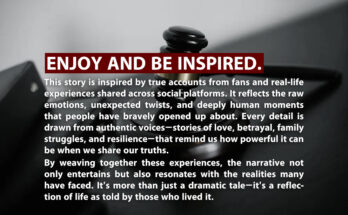We stood there, drenched in sweat, our scrubs clinging to us like second skin. Fifteen hours in the operating room had drained everything but our focus. My hands trembled, my back ached, but my eyes locked onto the monitor. Stable signs. Finally. The silence that followed was deafening. I looked at my colleague—his face marked by fatigue, his eyes glowing with something deeper. Relief. He smiled, and I returned it. Not the kind of smile you give for a photo, but the kind born from surviving the impossible. We had fought for a life, and for now, that life had won.
Most people were asleep while we worked. The world outside was quiet, unaware of the battle we waged inside sterile walls. We weren’t chasing glory or applause. We were chasing a heartbeat that had nearly stopped. Every second mattered. Every decision carried weight. There were moments when doubt crept in, when despair whispered, but we didn’t let go. We couldn’t. Because when you’re holding someone’s life in your hands, rest isn’t an option. Purpose keeps you upright. Purpose keeps you going.
I’ve lost count of how many nights I’ve spent like this. The hours blur, the faces fade, but the feeling remains. That moment when the monitor steadies. That breath you didn’t know you were holding. That quiet exchange of gratitude between teammates. It’s not dramatic—it’s sacred. We don’t talk much afterward. We just sit, letting the silence wash over us. Sometimes we cry. Sometimes we laugh. But mostly, we just breathe. Because we’ve earned that breath. And so has the patient.
There’s a kind of intimacy in shared exhaustion. We know each other’s limits, each other’s strengths. We’ve seen each other at our worst and at our most heroic. No one outside this room can truly understand what it means to fight for a life hour after hour. But we do. And that’s enough. We don’t need medals. We need each other. And maybe, once in a while, a simple “thank you” from someone who knows what it cost.
I think about the patient sometimes. Will they remember this night? Will they know how close they came? Probably not. And that’s okay. Our job isn’t to be remembered—it’s to make sure they get the chance to forget. To wake up, to heal, to live. That’s the reward. That’s the reason. And when I see them walking again, laughing again, I know it was worth it. Every hour. Every ache. Every ounce of sweat.
So tonight, as we sit in silence, I hold onto that smile. The one that says, “We did it.” The one that says, “They’re still here.” And if anyone asks why we do it, I’ll tell them this: because saving a life is a purpose that doesn’t let you rest. And because sometimes, the quiet victories are the ones that matter most.


